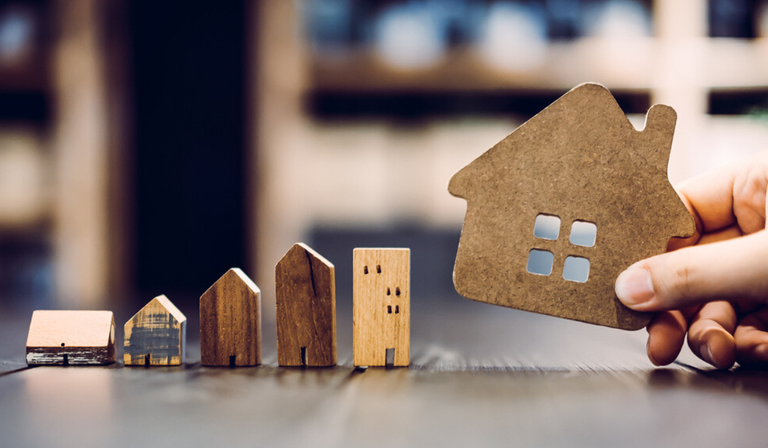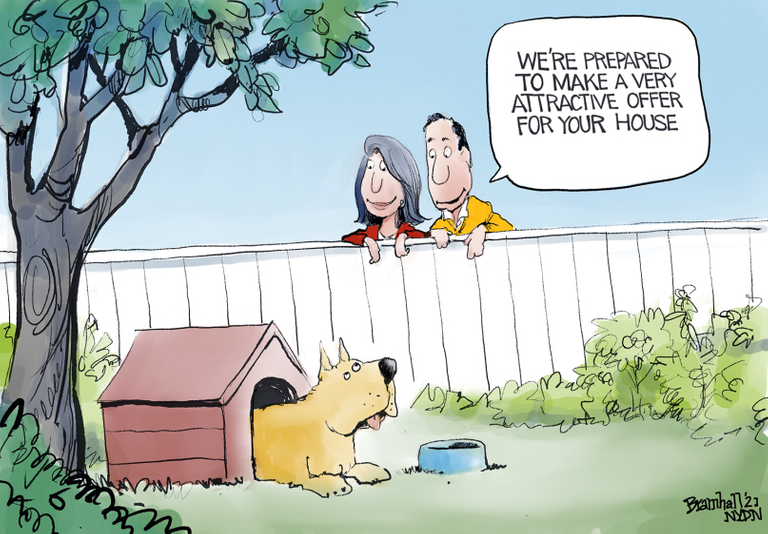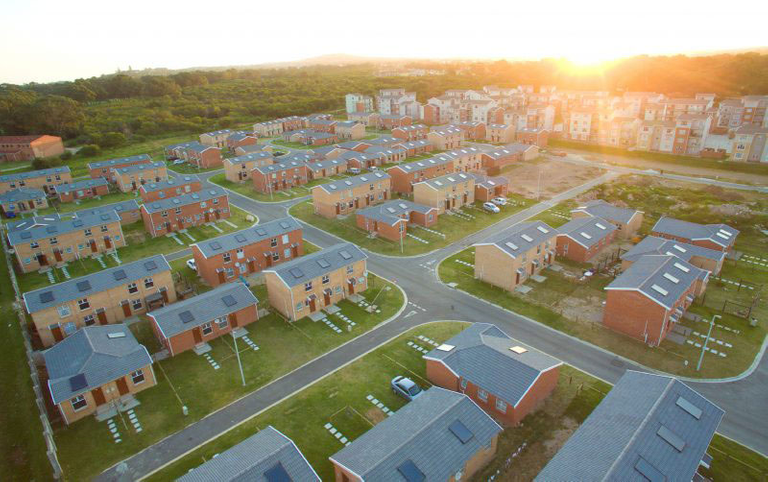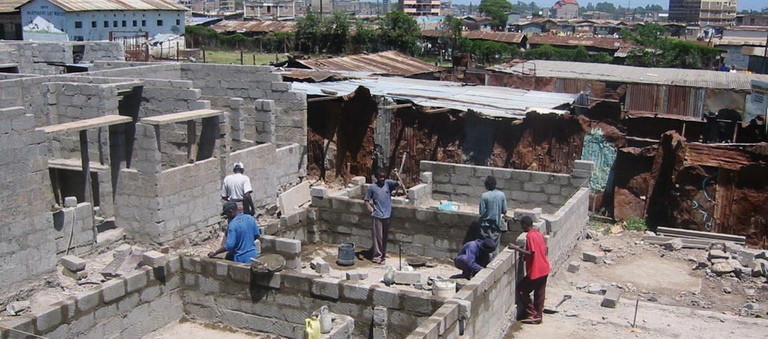The key debates in housing approaches (Part 3) ~ Short Article * 7
The biggest challenge of housing is the shortage of housing. The demand by the population is too high for the government to supply houses at the same pace. In order to decrease the gap between demand and supply, different approaches have been analyzed and used.
It is important to note that providing housing is not only providing a dwelling but basic services as well. In other words, the government aims to provide or create human settlements. The “product” is housing, but it is achieved by the “process” of creating human settlements.
Housing Demand, Housing supply and Affordability
Housing demand can be described as the willingness of an individual to purchase a house or property, but also the financial ability. The housing demand is influenced by the size of the population and their “wants” not their “needs". The population may not need housing or new housing but rather, they want new housing. This places extra responsibility on planners and the government to deliver more than is needed at higher costs.

Housing demand is influenced by what people need, what they want and what they can afford.
Source: https://housing.com/news/impact-of-covid-19-on-housing-demand/
Housing supply is the ability of planners, the government and construction companies to provide new and improved housing, along with basic services. The availability of building materials, money and labour will affect the housing supply. The supply will also influence affordability.
The affordability of housing indicates the balance between the price of new housing and the total income of the individual or family. Low-income households will typically have smaller houses, while high-income households will have larger more modern houses.

Where you live is depend on your income. A household should not spend more than 30% of its monthly income on housing.
Source: https://www.riseservices.org/affordable-housing/
Housing Affordability plays an important role in both the demand and supply of housing. Households of all social and economic classes should be able to afford a house, making this possible by planners and governments. While some classes demand new and improved modern houses, other classes may demand infrastructure and basic services. The demands can be met by providing subsidies, housing support and credit, land, infrastructure and services and a housing environment.

Source: https://theweek.com/cartoons/983074/editorial-cartoon-housing-prices
Subsidies and support
Supplying individuals with finance or material creates transparency, discipline and freedom of choice. The aim of subsidies is to offer basic services, some security and a basic formal structure.
The subsidies should be equal in all communities. Living standards and housing standards may differ across nations, but it is important for subsidies to meet the basic human needs of housing. Maximum flexibility needs to be allowed in subsidies and provision needs to be made for any hidden subsidy costs.

Housing subsidy program (FLISP) in South Africa. The country has many different housing programs such as RDP, GBA and FLISP.
Source: https://veliletintocape.co.za/flisp-housing-subsidy/
Households will have access to the housing they can afford. With subsidy being one way to improve housing, another is to provide housing or support towards housing. This includes governmental housing or housing support mechanism, that will assist individuals to build their own homes. This is also known as self-help housing.
Self-help housing allows individuals to assist themselves by means of receiving help from the government or private sector. The support may be financial, provision of building materials or building plans, or education of the community on how to build their own houses. This creates some sort of community connection and allows individuals to be proud of what they have achieved.

Self-help housing can either provide materials, guidance or financial aid. These people will build their own homes with assistance from real builders. These types of houses are usually built outside building regulations but are still safe and a place to call home.
Source: https://world-habitat.org/world-habitat-awards/winners-and-finalists/technical-team-planning-for-self-help-housing-in-the-kambi-moto-community/
Self-help housing may not be up to building standards, but with the right support, the individual can provide for themselves and lower the demand on the planners and government.
Sources
Please note that I make use of various articles to form my posts. All articles used are listed below. Feel free to download and read them!
Department of Housing, 1994. White Paper: A New Housing Policy and Strategy for South Africa.
Fuller Housing Center. 2014. Housing Delivery in South Africa. South Africa, Western Cape.Henilane, I. 2016. Housing concept and analysis of housing classification. Baltic Journal of Real Estate Economics and Construction Management, 4(1), pp.168-179.
Hewes, M. 2017. Housing Needs Are Different To Housing Demand. [online] Ft.com. Available from: https://www.ft.com/content/f0bc36c6-d6d6-11e7-8c9a-d9c0a5c8d5c9
Sheibani, G., & Havard, T. 2018. Housing Concept, Problem, and Policies. [online] Available from: https://www.irbnet.de/daten/iconda/CIB16799.pdf


Congratulations @misshugo! You have completed the following achievement on the Hive blockchain and have been rewarded with new badge(s):
Your next target is to reach 60 posts.
You can view your badges on your board and compare yourself to others in the Ranking
If you no longer want to receive notifications, reply to this comment with the word
STOPTo support your work, I also upvoted your post!
Support the HiveBuzz project. Vote for our proposal!
Interisting article... I read through it now...
As regards to South Africa. Do you think the govermental structure here still put funds aside for the building and development of houses? Especially in the rural areas?
And if so do they still develop in these community? Etc are they still busy building RDP houses? I haven't heard anything of that in the news for years now
Money is still put aside in SA. But it's not really being used 😅. SA has moved away from RDP housing for some time, focusing rather on GBA or social housing. Social housing is increasing in SA (there is new ones in Mosselbaai).
With rural areas... Not much is happening in regards to anything... Some private practitioners are trying and the government is trying but if things aren't done according to what people need and what they can afford it's not gonna make a difference.
https://twitter.com/1205092265615659008/status/1583727753609629696
The rewards earned on this comment will go directly to the people( @technicalside ) sharing the post on Twitter as long as they are registered with @poshtoken. Sign up at https://hiveposh.com.
"... the gouvernement to supply housing ." ? In most advanced economies housing is a domain left to the private market. Government intervention is usually "at the margin", to achieve public policy objectives and correct market imbalances ... but the vast majority of the housing supply is expected to be provided by the private market .... If on the conteary the government is expected to supply housing, I'd posit it is an indication of policy failure ...
Agreed. But that is the point, in places such as South Africa, which is a third world country, housing is supplied by the government and the private market. Not all countries are economically advanced. In first world countries this is definitely a policy issue. There are still first world countries where government supply social housing. Government will always have to step in if things go wrong.
Interesting because South Africa is presented as "the African's continent biggest economy" and also the "S" of the BRICS so one gets the impression that RSA is an advanced economy...
I'm aware of BRICS, I'm an Urban Planner in South Africa. Unfortunately what the world know of us is not what's going on here. We have a poverty rate of more than 50%. We have children who never finish school, 70% of our country make use of informal transport on a daily. Our rural areas are dying due to lack of investment.
The world looks at Cape Town and Johannesburg and think the entire South Africa looks like that. As a planner who works with poor communities I can tell you that's not the case. The BRICS is helping a lot with advancing our economy, but SA is still a country in poverty, with the gap between rich and poor increasing. I'm currently working on a housing project colse to my town, and most of those people don't have anby income, food and proper shelter. At this point the government steps in to help these people. We are providing financial aid and teaching them how to build. Sustainable materials is supplied to make these communities more resilient.
If perhaps your interested and have time, go read a bit about SA poverty and informal settlements. I think this will help you see the side of South Africa a lot of people are not aware of. The country is not just formal urban spaces, we really struggle with housings.
As you said... In most advanced economies.... This is hardly the case for South Africa, with more than 70% of the country being poor... I say 70% percent as an estimate.. Not as a fact...
But the majority of the country doesn't even have access to basic needs such as water and electricity... So for them to build their own housing on a below minimum wage is just impossible.. Especially if you can't even feed yourself..
So the general housing issue falls back to a govermental responsibility.
!BEER
!PIZZA
!LUV
@technicalside(2/3) gave you LUV. tools | wallet | discord | community | <>< daily
tools | wallet | discord | community | <>< daily
HiveBuzz.me NFT for Peace
I gifted $PIZZA slices here:
@technicalside(2/5) tipped @misshugo (x1)
Send $PIZZA tips in Discord via tip.cc!